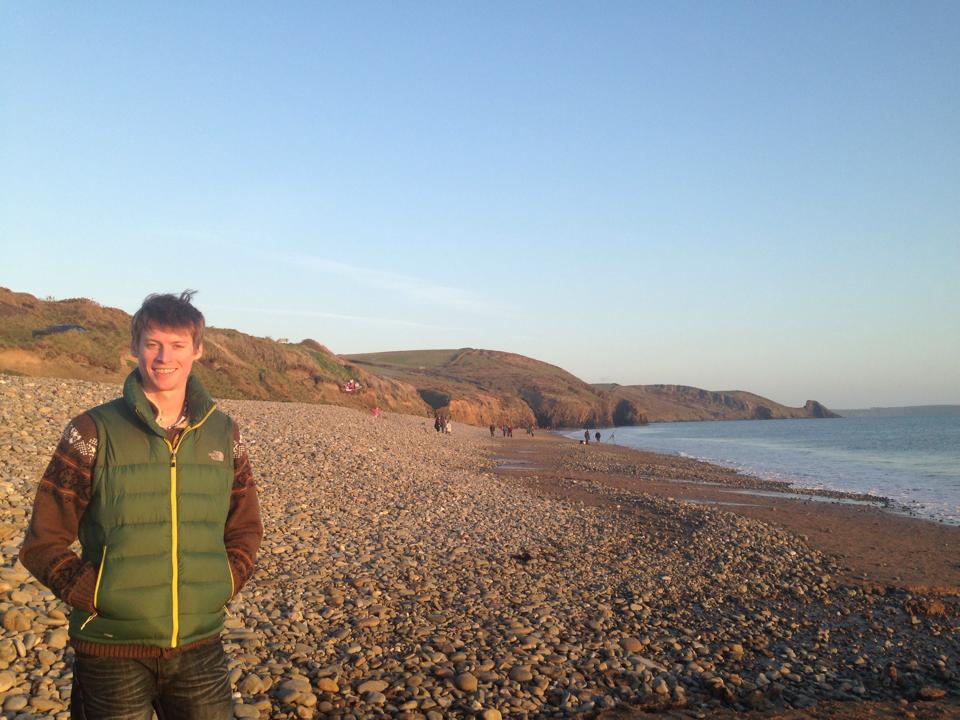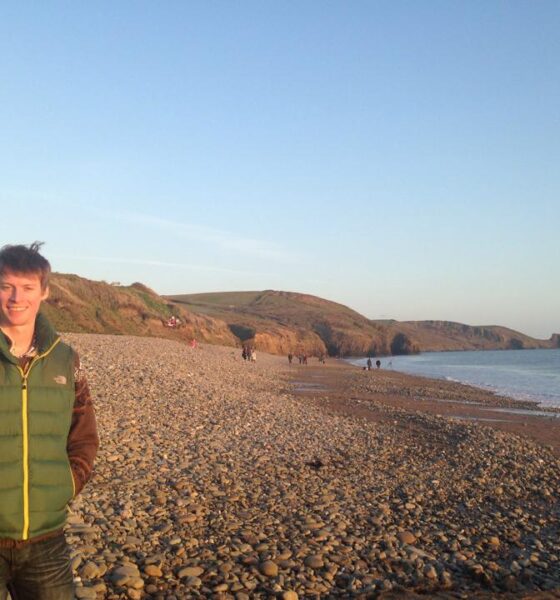

Economy
Future sustainability leaders: Adam Lewthwaite
What will business look like in the future and who are our future leaders?
This is the next instalment in our series speaking with a group of young people who are making waves in sustainability. All 12 are scholars on Forum for the Future’s renowned master’s course in leadership for sustainable development.
Adam Lewthwaite’s initial interest in climate change developed into a wider interest in sustainability and sustainable leadership as he learnt more about the problems we face. Here, he tells us about some of the key lessons he has picked up over the past year.
Tell us about your experience on the Forum for the Future master’s course. What have your placements involved?
I decided upon the Forum for the Future course because of it’s mix between placements and lectures, and I have not been disappointed. The opportunity to apply learning into real-life situations has been invaluable, ranging from: practical applications such as Forum’s innovation labs, to looking at the application of theoretical studies around leadership.
During my placements I have been based at Sainsbury’s working on food waste, Interface looking at staff engagement, Brighton and Hove city council to research potential renewable energy projects, and finally Ethex to work on a quarterly financial reporting framework. This wide spread of projects within different organisation types provides a great insight into different company cultures, their approaches as well as ways of working.
Where does your interest in sustainability come from?
During my geography degree, I concentrated my studies on climate change and modelling future climates. Through these classes I discovered the true severity that humans’ impacts were having on climate change, and the current and potential impacts that this change is creating on the planet and therefore human society. Since this initial realisation, my interest has grown from climate change to the need for sustainability in all areas of our lives.
What is the best piece of advice you’ve been given during your course?
It is hard to pinpoint one piece of advice. The course is a learning curve, taking you through a journey of understanding from very different angles and approaches to hopefully produce a well-rounded sustainability leader. However, for me the key concept that I will take from the course is to take the time to reflect on what you are doing, why things are going well or not, and to make sure that you take those thoughts and learning forward.
What’s most important business lesson you’ve learnt?
The importance of leadership within any team to unite people and help them to strive towards a unified goal. Until this course, I understood leadership was important but did not appreciate variations of leaders and leadership from traditional top-down to multilateral leadership.
I have also come to understand the importance of leadership within sustainability in a business context, where we often have to deal with difficult problems with no clear-cut answers, working across business from a matrix point of view bringing everyone together from a variety of disciplines to find solutions and implement ideas.
What one idea do you think could change the world for the better?
Sustainability being taught comprehensively through the education system. A greater understanding of the positives and negatives of our actions from a young age, evidence of successful business models both private, public and charitable/NGO sector, so that it is seen as pivotal in all business, not just a secondary thought.
What do you see of the future in terms of sustainability, business and the environment?
Sustainability in business is currently mostly seen as viable only when there is a financial business case to make it so. I see in a future of increased resource scarcity, and consumer-driven want for change, that the business case for sustainability becomes easier and easier to make, until the sustainable option is seen as an attractive option, not just financially but also due to the multiple external factors that it will include.
Where will you be in 10 years’ time?
I will be working for a company that is pushing the cutting edge of sustainable innovation. There are many companies who are driving sustainability issues forward, being vanguards for best practice and encouraging the rest of the business world to follow them or be left behind. I want to be a leader within sustainability in my place of work, and in order to do this have to engage with and motivate those I work with internally within the business and bring together an understanding of sustainability principles in the context of the workplace I am in, driving everyone forward towards goals in this area.
Success to me will be achieving the goals I have helped to put in place and making a really positive impact on the business and wider social, economic or environmental impacts it has, also having an engaged work force all fighting for these same goals and who are ‘bought in’ to the sustainability goals.
Further reading:
Future sustainability leaders: Kate Beattie
Future sustainability leaders: Maia Tarling-Hunter
Future sustainability leaders: Ruth Shave
Future sustainability leaders: Angela Green
Future sustainability leaders: Andrew Adam
Future sustainability leaders: Zoe Draisey
Future sustainability leaders: Rebecca Trevalyan


 Environment12 months ago
Environment12 months agoAre Polymer Banknotes: an Eco-Friendly Trend or a Groundswell?

 Features11 months ago
Features11 months agoEco-Friendly Cryptocurrencies: Sustainable Investment Choices

 Features12 months ago
Features12 months agoEco-Friendly Crypto Traders Must Find the Right Exchange

 Energy11 months ago
Energy11 months agoThe Growing Role of Solar Panels in Ireland’s Energy Future





























